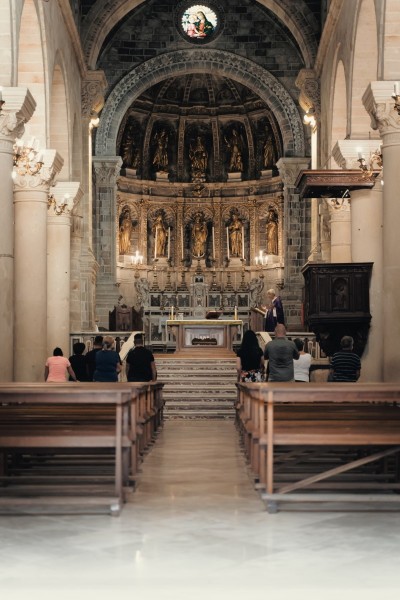Cultural Christianity and civil religion

Several Catholic thinkers inclined towards integralism (Wikipedia definition: “Catholic faith should be the basis of public law and public policy within civil society.”) wrote interestingly in defense of European style cultural Christianity. Many American Evangelical elites disparage this concept, whose USA Protestant approximate equivalent is civil religion, as an unacceptable dilution of authentic faith.
But these Catholic thinkers explain:
"The tradition of cultural Christianity recognizes — and embraces — key elements overlooked by liberalism’s transmutation of Christianity into global humanitarianism. As the French political philosopher Pierre Manent put it in describing his own country, we live in nations marked by Christianity — not to the exclusion of other religions, but stamped nonetheless by the Gospel and the Cross. Christian nations take care of the sick and the poor, preserve life from conception until natural death, incarnate their faith in holidays and festivals, and inspire public life with hope for eternity."
"Historic Christianity, especially Catholic Christianity, is a mass, public religion, and it has ever sought to encompass civilization. From the beginning of his public ministry, Jesus of Nazareth was drawn to the company of the masses, to weddings and funerals and other scenes expressing the ordinary joys, aspirations, and sorrows of ordinary people. We must not forget that even as the crowds turned against him when his teaching got hard, and even as they voted to crucify him, it was precisely the masses he sought, and seeks, to save."
To critics who complain that cultural Christianity is “insincere and hypocritical, tawdry and chauvinistic,” they respond:
"The critics’ charges are false, their claims utterly alien to the great commission of historic Christianity. Intending to safeguard the purity of sincere faith, they in fact propose an unpardonable abdication of responsibility that owes more to an individualized, privatized and modernized account of the faith than to anything in the tradition. Cultural Christianity has dominated the Western world for the better part of two millennia, and we believe it is very much worth defending once more."
These Catholic writers are insightful in rejecting the privatization of faith often implicitly preferred by some USA Protestants, who prioritize a more exclusive focus on evangelism or church purity, and who believe civic faith is intrinsically corrupt. Sadly, these Catholic writers do not cite as exemplars of cultural Christianity the prayers at USA civic events or the Church of England’s bishops opposing assisted suicide. Instead, they cite mostly right-wing European nationalist leaders who cynically exploit symbols of Christianity, like Italy’s Matteo Salini waving a rosary at a political rally along with France’s Marion Maréchal and Hungary’s Viktor Orban. Why not include Vladimir Putin, who is a tremendous patron of Russian Orthodoxy?
More disturbingly, in light of their implied support for its contemporary application, they note St. Augustine “never wavered from the view that the expansion of Christianity with the assistance of temporal power belonged to the very providence of God.” Undoubtedly true, and in Augustine’s context arguably understandable, although USA critics of Constantinianism would vigorously disagree.
Integralists argue for state advocacy today of religion, specifically Catholicism, even through coercion of persons outside that faith. Should non-Christians and non-Catholics be compelled to subsidize and live under the rule of a Catholic-themed regime? The integralist vision says yes.
These writers offer their integralist-inspired vision of cultural Christianity as the alternative to their favorite bete-noire, “liberalism,” which they equate with rabid secularism, sterile consumerism, and human atomization. They omit classical liberalism’s gift of freedom of speech, human rights, equality before the law, widespread prosperity, technology and medical science, and an era of relative peace. Inquisitors are no longer tortured, witches are no longer burned, women have equal rights, civil life no longer has legally binding theological litmus tests and historically Christian nations of the West no longer war against each other as they did for centuries.
But as Christians should profoundly understand, the world remains fallen, and even in an era of relative peace and prosperity, people fail to live as sanctified saints or build societies that resemble God’s Kingdom. The founders of classical liberalism rightly thought it a great victory for righteousness that societies could be relatively peaceful, tolerant, and subdued, avoiding the zealotries of crusades and holy wars. America’s founders mostly were happy to construct a benign commercial republic, not a theocracy or a holy empire. People devoted to making money generally are less dangerous than zealots seeking to inaugurate God’s Kingdom on earth, often through rivers of blood.
Even commercial republics need spiritual architecture. For America, mostly Protestant-inspired but inclusive civil religion has generally served us well. It inhibits holy wars but invites religious inspiration and restrains ideological extremism. It reminds us of God’s watchful Providence and judgment. It summons us to care for the common good and godly human dignity.
American civil religion is different from continental European ethno-nationalist movements that sacralize their cryto-authoritarian politics with garnishes of Christian symbolism. A true cultural Christianity upholds God-given human liberty instead of baptizing coercion or promising unattainable regimes of holiness.
These Catholic integralist-friendly writers are right to lament amorphous humanitarianism, which they describe as liberalism, that pretends to function absent spiritual architecture. True liberalism, sometimes known as Whiggery, classically rests on biblical premises about humanity’s nature and purpose. But unlike integralism or other spiritual utopianisms, it knows the limits of fallen humanity and leaves redemption to God, who, unlike human systems, merits the trust.
Originally published in Juicy Ecumenism.
Mark Tooley became president of the Institute on Religion and Democracy (IRD) in 2009. He joined IRD in 1994 to found its United Methodist committee (UMAction). He is also editor of IRD’s foreign policy and national security journal, Providence.



























